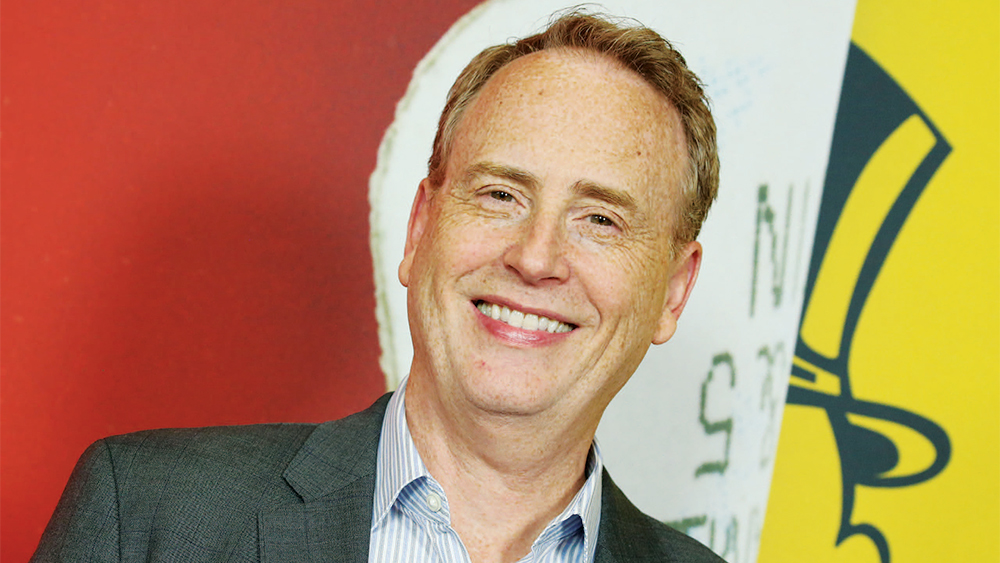How the NAB Show’s Executive Leadership Summit’s Pivot to Digital Matches Keynote Bob Greenblatt’s Own Career Trajectory
By Cynthia Littleton
LOS ANGELES (Variety.com) – Many of the executives leading the streaming revolution in television came of age on the job as the industry was rocked by the launch of Fox and the rise of cable. That experience during a tumultuous time in an earlier era is proving invaluable today.
Bob Greenblatt, chairman of WarnerMedia Entertainment, got his start on the Fox lot in the 1980s. Learning the business at a place that was actively rewriting the rules of television was good training for the task of taking HBO and other storied entertainment brands into the digital future.
Greenblatt is the keynote speaker for the NAB Show Executive Leadership Summit, produced in association with Variety Streaming Room, set for May 11 and May 13.
The ELS gathering had been scheduled to take place April 19 in conjunction with the National Assn. of Broadcasters’ annual NAB Show convention in Las Vegas, which typically draws more than 90,000 attendees — but it was among the dozens of events on the entertainment industry calendar that were forced to go dark this year amid the coronavirus pandemic. The shift of ELS to a remote production to stream online was ironically in keeping with the theme of this year’s gathering, namely to examine the seismic industry shifts as mainstream Hollywood bets big on streaming platforms.
“Given the circumstances, we felt it was important to move the event online in order to stay connected to the NAB Show community during this difficult time and provide critical information, inspiration and solutions to help the industry move forward,” says Chris Brown, executive vice president, conventions and business operations, NAB.
The level of industry interest in the subject of leadership at a transitional time for the industry is underscored by the high-profile executives that helped assemble the summit. That list includes ABC Entertainment president Karey Burke; Sony Pictures Entertainment chairman-CEO Tony Vinciquerra; Paramount Television Studios president Nicole Clemens; Neal Mohan, chief product officer and senior vice president at YouTube and Google; and Verizon Media CEO Guru Gowrappan.
“The Executive Leadership Summit is the type of education programing that adapts well to the online environment, as it is targeted to a unique and somewhat limited community — c-suite executives driving strategy for their companies,” Brown says. “Yet because it focuses on a high-level view of the issues that are shaping media, it has relevance to a much wider audience.”
Greenblatt came to WarnerMedia in March 2019 after spending seven years at NBC Entertainment. He moved over to WarnerMedia just as AT&T was in the midst of the messiest part of its integration of HBO, Warner Bros. and Turner — the former Time Warner assets that AT&T acquired in 2018.
Against the backdrop of a big management shakeup — longtime HBO chief Richard Plepler and Turner’s David Levy stepped down after Greenblatt’s appointment — Greenblatt came in with a mandate to re-engineer certain operations to support the launch of HBO Max. And he had to implement that as longtime Time Warner staffers were still adjusting to changes large and small instituted by their new parent company. That was a leadership test that Greenblatt has faced before, and he knew instinctively that forthright communication of goals and priorities was crucial to explain why changes were being made and why HBO Max was such a focus for the broader company.
“You have to be really respectful of the legacy you’re walking into,” Greenblatt says. “You have to show great reverence and respect for what the company has been and its success. You have to recognize that, and then try to bring people along to what your vision is for what it is going to be in the future.”
In the face of inevitable resistance, leadership means finding the way to get people motivated to embrace change.
In Greenblatt’s experience that means assembling a blend of company veterans and newcomers into units with clearly articulated missions that are supported from the top. “If you put the right team together you can show people how they can work together. And you have to believe in the goal,” he says. “In this case, the ultimate goal is the creation of a streaming service that is going to transform the company.”
The laser focus on HBO Max has helped WarnerMedia pull together after the post-merger management shakeups. The task of creating a broad-based streaming platform in less than 18 months is so overwhelming as to force everyone to row in the same direction or jump off the boat. The biggest challenge is that the direct-to-consumer subscription business model is still full of unknowns for traditional giants such as HBO and Warner Bros. AT&T is banking on its investment in content for HBO Max to take the place of profits once generated by selling movies and TV shows to third-party buyers.
“The fact that there’s so much uncertainty is what is really difficult about the job,” Greenblatt says.
There’s risk involved in the launch of any venture. But as Hollywood tries to compete with Netflix and Amazon in the streaming arena, there are still a lot of question marks even down to the metrics that will be used to determine how HBO Max programming is resonating with the audience.
“If you’re at a broadcast network or cable network, you kind of know, ‘Well, this audience is going to work here,’ and you know what the research means and you know what a rating point means,” Greenblatt says. “We’re still trying to figure out what’s the right measurement of the viewing experience on digital. It’s not a rating, we know that. There are so many things we’re figuring out. We’re just in such uncharted waters and trying to make sense of it as we go.”

